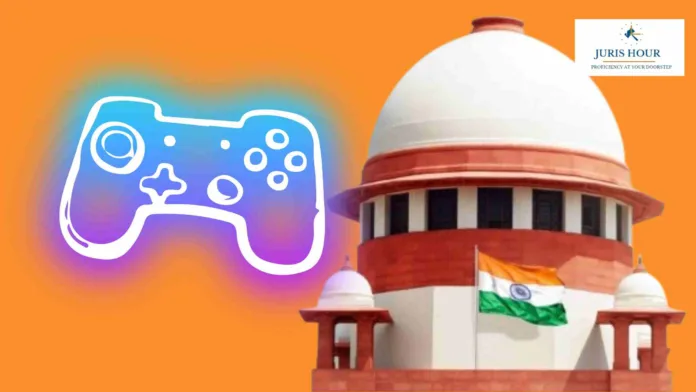The Supreme Court on Monday began hearing a high-stakes constitutional and tax case that could transform India’s online gaming, fantasy sports, and digital entertainment industries. At the core of the dispute is a retrospective Rs. 1.12 lakh crore Goods and Services Tax (GST) demand issued against online gaming platforms, fantasy sports operators, casinos, and racecourses — dating back to July 2017.
A bench comprising Justices JB Pardiwala and R Mahadevan is examining whether real-money games—regardless of being skill-based or chance-based—should be classified as gambling under GST law, triggering heavy taxation.
Centre Defends Tax Demand: Games With Stakes Are Gambling
Legal representatives for the central government argued that once a financial stake is introduced, even skill-based games like rummy or fantasy sports become taxable “betting and gambling” under the Central Goods and Services Tax (CGST) Act, 2017. According to the Centre, such activities constitute “actionable claims” and are therefore treated as intangible goods under GST, subject to tax.
Government officials have reiterated their commitment to recovering the full dues, stating that suggestions of leniency by former Revenue Secretary Sanjay Malhotra do not alter the legal stance.
Seven Key Legal Grounds Cited by the Government
- Monetary Stakes Determine Nature: Any game involving money qualifies as gambling, regardless of skill.
- State Law Protections Don’t Apply to Paid Games: Exemptions for skill-based games under state laws apply only when there is no monetary involvement.
- GST is a Distinct Legal Regime: GST operates independently of state gambling laws.
- 2023 Amendment Is Not New Taxation: The amendment on actionable claims is clarificatory, reinforcing existing tax principles.
- Actionable Claims are ‘Goods’: These are taxable as movable intangible property under GST.
- Rule 31A(3) is Constitutionally Valid: The valuation method aligns with previous legal frameworks.
- Central Taxing Authority Established: The 101st Constitutional Amendment empowers the Centre to tax gambling and betting.
Petitioners Challenge Constitutional Validity of GST Demand
Challenging the massive tax demand, petitioners—including major gaming platforms, casinos, and racecourse operators—argued that the move violates Article 14 (equality before law) and Article 19(1)(g) (freedom to practice any profession). They claim the law unfairly equates skill-based games with games of chance, leading to disproportionate tax burdens and compliance challenges.
Abhishek A. Rastogi, arguing on behalf of the petitioners and founder of Rastogi Chambers, emphasized that at least three of the Centre’s arguments raise serious constitutional concerns. If found invalid, the entire tax claim could collapse, he said. Rastogi also criticized the mandatory 10% pre-deposit requirement to appeal tax assessments, calling it a barrier to justice for smaller businesses.
“The real question,” Rastogi argued, “is whether the mere involvement of money changes the legal character of a skill-based game.”
Read More: 56th GST Council to Review Disparity as Central GST Outperforms States in Per GSTIN Collections

